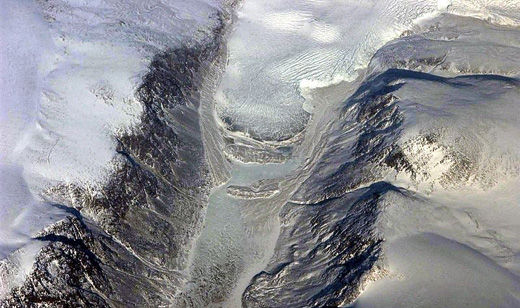
Many opponents of action on climate change wrap their arguments in claims of “scientific uncertainty.” In doing so, they exhibit their own flawed understanding of how science works, and what climate scientists are really uncertain about.
Science is never “finished.” It will never reach a point of complete understanding of everything, not even of everything about any one aspect of reality. There will always be things that we (meaning the collective knowledge of humankind) don’t yet understand.
There are several reasons for this.
One, the world is a complex of many systems, which constantly interact – and that complexity cannot be reduced to any simple proposition.
Two, because those systems are constantly interacting, they are also constantly changing – there is not a static universe which holds still while we analyze it.
Three, science works by developing ever more sophisticated tools to measure aspects of reality, but measurements are never the reality itself; they are just better and better approximations.
There is still much that we do not understand about climate systems and the ways they interact with all other human and natural systems. We know that the world is getting hotter, and getting hotter faster. But we do not know exactly how hot it will get by what date.
We know that the Greenland glaciers are melting, are melting faster, and that that will impact sea levels. But how much and by when still are a matter of speculation – educated guesses if you will. Estimates are based on measurements, on projections, on computer models, but they are not the melting itself.
We already observe the melting of permafrost in the Arctic regions of the world – those pictures of houses collapsing in Alaska are proof that the process is under way. We also know that melting permafrost releases greenhouse gases that have been frozen, in some places for millennia. But exactly how much and exactly how fast remain for us to discover.
All these uncertainties and more are uncertainties about climate change, but they are not uncertainties about whether climate change is taking place – only about its pace and scale. The real debates are about whether climate change will be catastrophic within years or within decades, and about whether or not we have already passed crucial environmental tipping points. We can predict with confidence that droughts and forest fires will increase in number and intensity (they have been doing so for many decades already) but we can’t predict where the next drought or forest fire will take place.
Conservatives play on these uncertainties to undercut support for action against global climate change, against the EPA regulating carbon dioxide emissions, against restrictions on pollution by industry and transportation.
Many of the conservative arguments against climate change don’t make sense. They are based on a rejection, implicit or explicit, of science itself. They ignore or gloss over the changes that are already obviously taking place all over the world.
But just because the reasons given in public for these conservative policies don’t make sense, that is not the same as saying the policies themselves don’t make sense. Just because some right-wing politicians make stupid claims, that doesn’t mean that they themselves are stupid (though obviously many of them are). It means they are stretching truth and reason to find excuses for the policies that benefit the owners and managers of fossil fuel industry.
Such policies “make sense,” in the sense that they make money for someone, lots of money. Transforming our energy production will mean some rich people won’t make as much as if we just continued business as usual. Limiting carbon dioxide emissions from electricity-producing coal-fired plants would cost the owners of those plants money they would rather put in their own pockets right now.
The same people who make false claims about climate science are the same people who make false arguments against raising the minimum wage, against equal pay for all, against workers right to organize. They are the same forces who want to fan the flames of anti-immigrant hysteria, who are working hard to restrict and limit the right to vote and the continuation of constitutionally protected abortion rights, who want to gerrymander congressional districts to continue their power a little longer.
Such policies make sense, for them and for their financial backers. They don’t make sense for the rest of us, the 99% who will pay the price for these anti-science, anti-environment, anti-democratic policies.
Everyone who makes a stupid argument is not necessarily stupid. Part of our job is to understand who such policies benefit, who makes money from sowing confusion and nonsense, who maintains political power longer as a result. Anti-science claims are financially benefiting a few people, which is why they are determined to undermine popular understanding of climate change science – and there is no uncertainty about that.
Photo: Melting ice flow at the Gothab Glacier in Greenland, 2004. Susan M. Ottalini/Wikimedia Commons (Susan Ottalini, a freelance photographer, is a former shop steward at IBEW Local 45.)

MOST POPULAR TODAY


Zionist organizations leading campaign to stop ceasefire resolutions in D.C. area

High Court essentially bans demonstrations, freedom of assembly in Deep South

Afghanistan’s socialist years: The promising future killed off by U.S. imperialism

Communist Karol Cariola elected president of Chile’s legislature






Comments